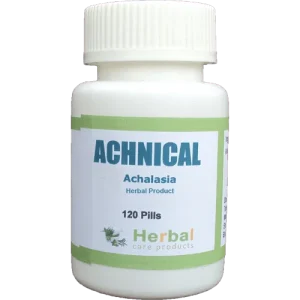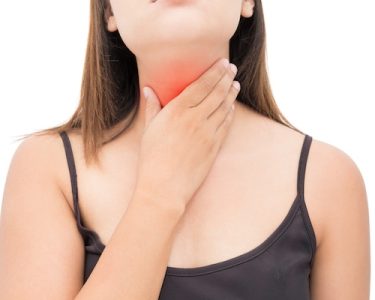What Is Achalasia?
The esophagus is the tube that carries food from the throat to the stomach. Achalasia is a serious condition that affects your esophagus. The lower esophageal sphincter (LES) is a valve that closes off the esophagus from the stomach. If you have achalasia, your LES fails to open up during swallowing, which it’s supposed to do. This leads to a backup of food within your esophagus. This condition can be related to damaged nerves in your esophagus. It can also be due to damage of the LES.
According to the Cleveland Clinic, achalasia affects about 4,000 people in the United States every year.
What Causes of Achalasia?
The causes for achalasia can happen for different reasons. It causes of achalasia can be difficult for your doctor to find a specific cause. This condition may be hereditary, or it may be the result of an autoimmune condition, which occurs when your body’s immune system mistakenly attacks healthy cells in your body. The degeneration of nerves in your esophagus often contributes to the advanced symptoms of the condition.
Other conditions can cause symptoms similar to achalasia. Cancer of the esophagus is one of these conditions. Another cause is a rare parasitic infection called Chagas’ disease. This disease occurs mostly in South America.
Related Article: Food getting stuck in your throat – Know who are candidate for Per oral Endoscopic Myotomy
Who Is at Risk for Achalasia?
Achalasia usually occurs later in life, but it can also occur in children. Individuals who are middle-aged and older are at higher risk for the condition. Achalasia is also more common in people with autoimmune disorders.
What Are the Symptoms of Achalasia?
People with symptoms of achalasia will often have trouble swallowing or feel like food is stuck in their esophagus. This is also known as dysphagia. This symptom can cause coughing and raises the risk of aspiration, or inhaling or choking on food. Other symptoms for achalasia include:
- pain or discomfort in your chest
- weight loss
- heartburn
- intense pain or discomfort after eating
You might also have regurgitation or backflow. However, these can be symptoms of other gastrointestinal conditions such as acid reflux.
How Is Achalasia Diagnosed?
Your doctor might suspect you have achalasia if you have trouble swallowing both solids and liquids, particularly if it gets worse over time.
Your doctor may use esophageal manometry to diagnose achalasia. This involves placing a tube in your esophagus while you swallow. The tube records the muscle activity and makes sure your esophagus is functioning properly.
An X-ray or similar exam of your esophagus may also be helpful in diagnosing this condition. Other doctors prefer to perform an endoscopy. In this procedure, your doctor will insert a tube with a small camera on the end into your esophagus to look for problems.
Another diagnostic method is a barium swallow. If you have this test, you’ll swallow barium prepared in liquid form. Your doctor will then track the barium’s movement down your esophagus through X-rays.
Related Article: Achalasia Cure Symptoms, Diagnosis Diet Treatment
What Is Treatment of Achalasia?
Most treatment for achalasia involve your LES. Several type treatment of achalasia can either temporarily reduce your symptoms or permanently alter the function of the valve.
The first line of best treatment is herbal treatment for achalasia. Nitrates or calcium channel blockers can help relax the sphincter so food can pass through it more easily. Your doctors might also use Botox to relax the sphincter.
Related Article: 8 Herbal Treatments for Achalasia
To treat achalasia more permanently, your doctors can either dilate the sphincter or alter it. Dilation typically involves inserting a balloon into your esophagus and inflating it. This stretches out the sphincter and helps your esophagus function better. However, sometimes dilation tears the sphincter. If this happens, you may need additional surgery to repair it.
Esophagomyotomy is a type of surgery that can help you if you have achalasia. Your doctor will use a large or small incision to access the sphincter and carefully alter it to allow better flow into the stomach. The great majority of esophagomyotomy procedures are successful. However, some patients have problems afterward with gastroesophageal reflux disease (GERD). If you have GERD, your stomach acid backs up into your esophagus. This can cause heartburn.
Natural Herbal Remedies for Achalasia
This is the way to treat where it loses the ability to move food along. The valve at the end of the gullet also fails to open and allow food to pass into your stomach. Achnical for achalasia natural remedies without any effect. Treatment by achalasia herbal remedies we prefer the Herbal Care Products company, who are create home remedies for patients. natural treatment for achalasia is the achnical product. Best natural remedies for achalasia help to improve gullet swallowing blocked with food & herbal remedies for achalasia have no side effects.
Related Article: Natural Remedies for Achalasia and Herbs Reduce Swallowing Disorder
What Is the Long-Term Outlook?
The outlook for this condition varies. Your symptoms might be mild, or they may be severe. Treatment can be highly successful. Multiple treatments are sometimes necessary.
Surgery may be necessary if a dilation procedure doesn’t work the first time. Usually, the chance of success decreases with each successive dilation. Therefore, your doctor will probably seek alternatives if several dilations are unsuccessful.
Related Article: Man Undergoes Life-Changing Surgery at Cleveland Clinic London
Almost 95 percent of patients who have surgery get some relief from symptoms. However, you may develop some complications. These include issues related to tearing of the esophagus, acid reflux, or respiratory conditions caused by food traveling up your esophagus and into your windpipe.
Source Link : http://www.healthline.com/health/achalasia#Overview1





